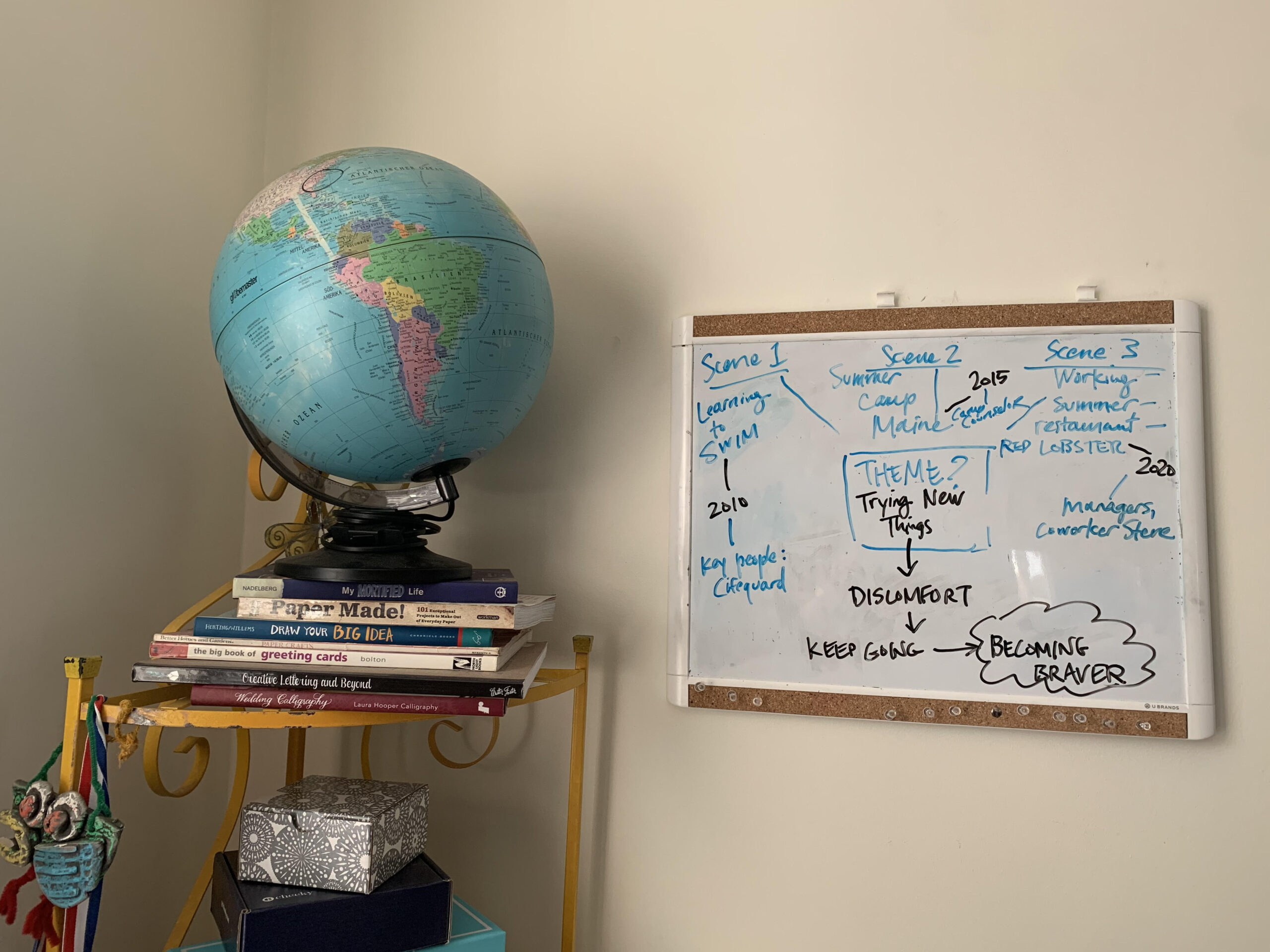Lesson Objectives:
- To examine all the choices put in to a single sentence.
- To activate thoughtful patience and apply it to the process of writing.
- To allow time to write.
- To practice discipline and focus.
- To find new ways to actively incorporate personal reflections into our work.
Guiding Questions:
- Why did Maya Angelou make the choices she did, and how can we approach our own sentence construction with the same thoughtful deliberation?
- How can we stay present with our sensations as they arise and put them to paper? What does “being present” mean and how might it help you as a writer?
- How does engaging mindfully in an action liberate the voice and imagination?
- What came up that surprised you, and how did you react to that surprise and/or incorporate it in your written work?
Materials/Set-Up:
Every student has a clementine before them, along with a pencil/pen and paper.
Close Reading #1/Warm-Up:
We begin with a single line taken from Maya Angelou’s I Know Why the Caged Bird Sings, and read it aloud several times slowly:
Life is going to give you just what you put in it. Put your whole heart in everything you do, and pray, then you can wait.
Then, we take apart the sentences and think of different ways to piece together the words—basically, what are some alternate ways to rewrite the same sentence, retaining as exact a meaning as possible? (For example: Whatever you put in to life, is what life will give you. If you give your whole heart to everything and pray, then you can wait.) We write these out so everyone can see them. Then we return to the original sentence and conjecture why Angelou chose the words she did in the way she did.
Ask students: While the single line is taken out of context, what do you make of this quote? What thoughts or feelings arise? How might this be applicable, or not applicable, to your world/life/choices? How do you interpret her words?
In the spirit of the quote, we are going to put our whole heart into peeling our clementines, first touching it, smelling it, looking at it, taking lots of time to be with the clementine, noting for yourselves what feelings, memories, or images might be arising. Ultimately, we get to eat our clementines, but all of this is done with great care and thoughtful slowness. You are welcome to jot down phrases or words as they come to you, but no full sentences yet.
Writing:
Now, we write about the experience! Begin with the senses—how did the fruit taste, smell, sound, feel, and look? Then, dive into whatever arose for you. If “nothing” came up, explain through your writing what that feels like. And if there are really no words you can think of beyond the sensations of the clementine, write the sensory word out repetitively with a gentle allowance for change. There is no limit or goal in terms of how many words need to be generated, however the entire 20-25 minutes must be nothing other than writing.
Close Reading #2/Sharing:
We take a brief moment to consider a second single line pulled from the same book:
Words mean more than what is set down on paper. It takes the human voice to infuse them with shades of deeper meaning
Discussion:
Ask students: What is voice? How is writing an extension of voice and what happens when it is heard aloud?
Invite students to share what they wrote and to reflect on the experience of sharing versus writing.
Alice Pencavel is a writer and teacher. Prior to joining Teachers & Writers in 2021, Ms. Pencavel worked as a Teaching Artist for multiple non-profits, including Arts Connection, SAY (Stuttering Association for the Young), Brooklyn Acting Lab, Stages on the Sound, Girls Write Now, and Teachers & Writers, among others. As a playwright, she has collaborated with Naked Angels, Lincoln Center Theater, MCC, Manhattan Repertory, Superhero Clubhouse, and the Kitchen Theater. She also worked in Customer Support with DonorsChoose, helping public school students receive educational materials. Having served as a Teaching Artist with Teachers & Writers, Ms. Pencavel has seen first hand the impact of bringing writing programs into schools, and is thrilled to offer her services in this new capacity. Ms. Pencavel holds a BFA in Acting from Ithaca College, and an MFA in Playwriting from the New School.


